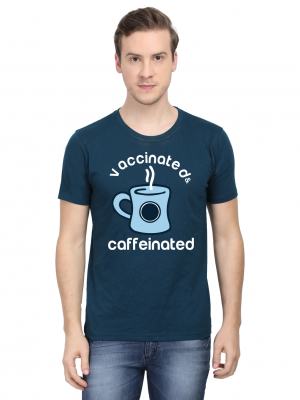Description
Shop Nattil Evida tshirt from our online store. This product is shipped to India only.

- 100% Super Combed Cotton
- 180 GSM
- Bio-Washed and offers excellent color fastness
- Pre-shrunk
- Double Stitched
- Regular fit
- Lycra ribbed neck
A dull evening, with worries dipped in whiskey and clouds shrouded in rain, I rummaged in my cupboard for a change of clothes and found something familiar. A T-shirt I picked up at a stall at Soul Sante, in a world before the virus. A black tee with white stenciled letters, written in a style that is hard to make out quickly as Malayalam, printing out two words unmistakable to every Malayali stuck in lands across the sea or ghats.
‘Nattil Evida’.
Words that light up many unsure eyes, new to foreign lands. If you are a Malayali, or mallu as if we are known in the lands that knew us first for our porn, you know what they mean. For the others, you probably heard this, or will if you listen closely when two mallus meet for the first time.
It translates to ‘Where are you in the homeland?.’ Like all translations, it’s a crude approximation. In Malayalam, it’s an easier, shorter, very obvious question. In Malayalam, veedu is your house, and nadu is your land, and it often means nearly the same thing.
A typical tongue twist would have made it ‘Nattil Evidunna’, which means “which part of the homeland are you from?” But I have never heard anyone ask that. The question is always ‘where are you?’ as if they know a part of you is still there.
For the many haters of our land, this question simply proves that no one can stay in Kerala because of a lack of jobs. I don’t want to argue with that because there’s some truth in it. Pravasi Malayali (migrant) is a term that is so mainstream that we have ministries for them, or us to be precise.
But I think the phenomenon predates the current lack of jobs, albeit at a smaller scale. Kerala is oddly shaped, a long, narrow slice of the coast. There is no point in Kerala that is farther than 120 km from the sea. Countless generations lived with their backs to the ghats and their eyes on the open seas. Of course we sailed out. It must have been hard not to.
Trade was a tentpole of our economy for centuries. That and the fact that almost the whole state is near the coast must have led to many of the traits we celebrate today – pluralism, tolerance, and peace. Across the world port cities tend to be more liberal and less xenophobic. It’s a natural effect of seeing outsiders and foreigners as people you can make money off, rather than threats to your imagined supremacy. People like to demonize money, but trade and exchange of exotic currencies is the most effective way to achieve peace.
To know more about the refund policy, click here.








Reviews
There are no reviews yet.